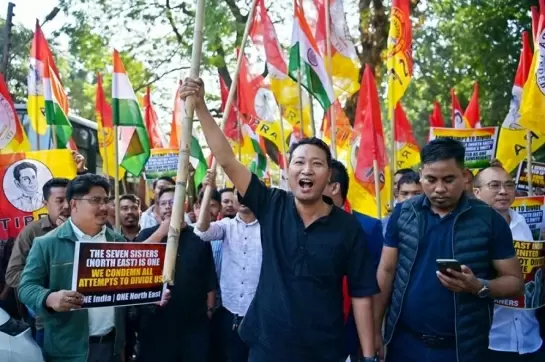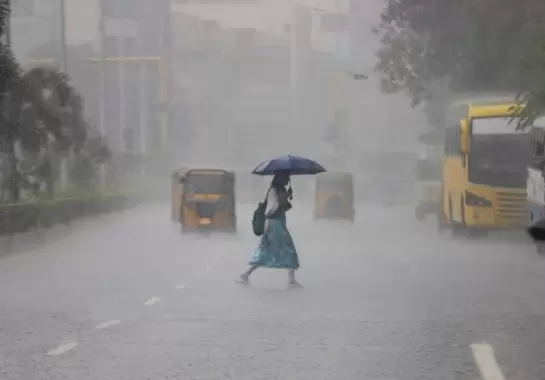Taking on the Raj, a memoir of partition, making peace with a mother (IANS Books This Weekend)
08-September-2019
Read about an Indian lawyer who had the gumption to take on the might of Britain in an English court - at the height of the Raj; a poet and literary writer details the trauma of the migration and violence that followed the partition of the sub-continent in 1947, and the politics that allowed it; and finally, trace the fragile line between familial devotion and deception.
There's much food for thought that the IANS Bookshelf offers this weekend. Immerse yourself!
1. Book: The Case that Shook the Empire - One Man's Fight for the Truth about the Jallianwala Bagh Massacre; Authors: Raghu Palat & Pushpa Palat; Publisher: Bloomsbury; Pages: 181; Price: Rs 499.
An Indian taking on an Englishman in an English court, presided over by an English judge and before an entirely English jury, seemed destined for failure from the start. Added to this was the fact that most of the defendants' witnesses were, being Indian, unable in court to testify.
But, Sir Chettur Sankaran Nair (1857-1934), the President of the Indian National Congress (1897), Advocate General of the Madras Presidency and a member of the Viceroy's Executive Council - to mention only a few of his many hats, was made of sterner stuff. He resigned from the Council in protest against the Jallianwala Bagh massacre of April 13, 1919 and published a book detailing the "atrocities" committed by the Raj in the Punjab - and specifically the massacre.
That led to Michael O'Dwyer, then an Acting Brigadier General and the Lieutenant Governor of Punjab, who ordered the firing, to file a defamation suit at London's Royal Courts of Justice. A lesser man would have balked but not Sir Chettur who decided to take the issue head on.
He might have lost but he "achieved his primary goal which was to expose the injustices and cruelties the British had meted out to the people of the Punjab. The Punjab atrocities could no longer be confined to the lanes of Amritsar. The trial had brought them to the notice of the entire world. This was an era when the written word - newspapers - was the main source of global information", the book says.
"Soon, every gory detail of the brutalities that were hitherto confined to the provincial borders of the Punjab became common knowledge to anyone who picked up a newspaper in India or elsewhere in the British Empire," it adds.
The book is a valuable contribution to the narrative that has been re-ignited on the 100th anniversary of the Jalianwala Bagh massacre.
2. Book: The Sixth River - A Journal from the Partition of India; Author: Fikr Tausnvi (Translated from Urdu by Maaz Bin Bilal); Publisher: Speaking Tiger; Pages: 173; Price: Rs 499.
Born Ram Lal Bhatia in Taunsa Sharif town of undivided Punjab, Taunsvi left for the region's cultural capital of Lahore in the 1930s, where he worked for various newspapers, wrote poetry and articles and became part of the intellectual circle. But when partition was announced, he was faced with a new reality - of being a Hindu in his beloved city - that was now in Pakistan.
Tausnvi wrote "The Sixth River" (of blood in the Land of the Five Rivers) between August and November 1947 as Lahore disintegrated around him.
Sample this penned on October 17:
"Lahore's garden of heaven lies devastated. The leaves are scattered, the flowers have wilted. Thus, the refugees find no shelter. No respite it to be found. The waves of song rise in the heart only to die a quick death. With the ominous emotions of petulance, despair and death, the refugees have started ceaselessly roaming the streets of Lahore. Large, lonely and helpless groups dressed in old rags, sit staring at the skies from under the trees on the footpaths..."
Such is the angst partition evoked in Tausnvi, brought alive in English for the first time. It's a timely reality check.
3. Book: Girl In White Cotton; Author: Avni Doshi; Publisher: 4th Estate/HarperCollins; Pages: 273; Price: Rs 599.
"I would be lying if I said my mother's misery has never given me pleasure.
"I suffered at her hands as a child, and any pain she subsequently endured appeared to me to be a kind of redemption - a rebalancing of the universe, where the rational order of cause and effect aligned.
"But now, I can't even the tally between us."
Thus begins the tale of Antara, who has never understood her mother Tara's decision - walking out of her marriage to follow a guru, living on the streets as a beggar, shacking up with an unknown artist, rebelling against society's expectations. But, when Tara starts losing her memory, Antara searches for a way to make peace with their shared past - a past that haunts them both.
Most definitely a book for the thinkers and the sensitive.
IANS
BMC Elections: Thackeray Cousins Unite as BJP Pushes Global City Agenda
Madras HC To Deliver Its Verdict Tomorrow On Thiruparankundram Hill Lamp Case
Trump Says He Watched Maduro Raid From Mar-a-Lago
Venezuelan President, Wife Captured After Strikes On Caracas, Claims Trump
Bengaluru to Get Third-Largest Park After Lalbagh, Cubbon; Basavanna Biodiversity Park Approved









